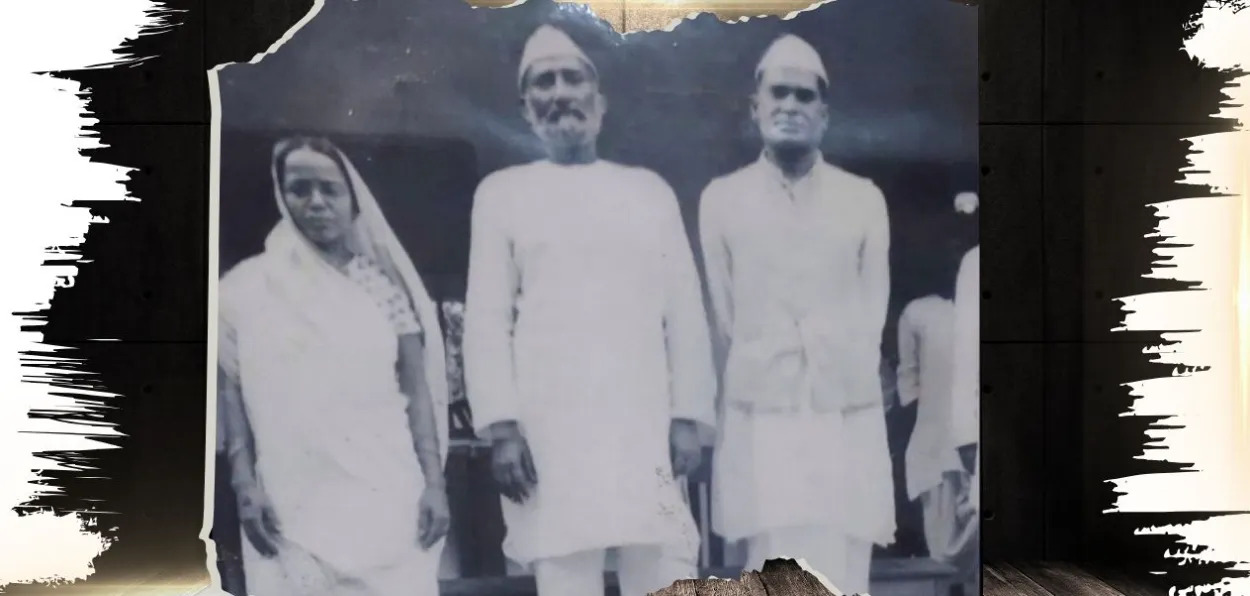
Saquib Salim
“I congratulate you for your having successfully organised so mony Unions in such a short time,”Sardar Vallabhbhai Patel wrote these words in a letter to Prof. Abdul Bari.
A Slice Of History
Prof. Abdul Bari was one of the tallest leaders of Congress from Bihar and the most popular leader of labourers and workers in India at the time of his assassination on 28 March 1947.
S. K. Sen in his book, Working Class Movements in India: 1885-1975, writes, “Indeed, Bari was a great labour leader whose main achievement lay in building up the movement from below to wring concessions from the management.”
A close associate of Dr. Rajendra Prasad right from the Non-cooperation movement, Prof. Abdul Bari was given a responsibility to organise industrial workers in Bihar. He reached Jamshedpur, the town which had a steel plant, in 1929 and within a few weeks organised a strike of industrial workers at Tata Tinplate company.
From 1929 till 1937, Bari’s focus remained divided between Jamshedpur and other regions of Bihar. In 1937, he took over the leadership of the labour union at Jamshedpur from Subhas Chandra Bose. The popularity of Bari among the workers rose steadily and within a year he transformed unions into a force to reckon with.
In 1939, the companies tried to sponsor Hindu and Muslim gangs to create a communal riot in Jamshedpur to create cleavages in the labour movement. But, timely action from the workers' union ensured that people understood the evil design and the riot couldn't cause much damage.
In the same year, Congress faced a crisis where Socialists led by Subhas Chandra Bose and Gandhians came face to face. Prof. Abdul Bari sided with the Mahatma Gandhi led group. It was to his credit that the workers' union remained with Gandhi's faction even when Bose, J . P, Swami Sahjanand and others campaigned in Jamshedpur to wrest control from Bari.
In 1940, when Muslim League led by Muhammad Ali Jinnah demanded the Partition of India, Bari was given a responsibility to hold conferences among Muslim masses to make them aware of the importance of a united India. He established Khidmat Khanas at different Muslim localities across Bihar and campaigned against the Muslim League. In 1942, the Quit India Movement was started and Bari was also imprisoned.
After his release, Bari again started organising coal mine workers in 1945, railway workers, metal workers and peasants along the nationalist Congress line. It was his plan to organise all of these sections for the freedom struggle which had the complete confidence of the top Congress leadership of the time, especially Rajendra Prasad. The main goal was to counter the influence of Socialists and Communists among the workers.
By May in 1946, he had already organised workers' unions at:
Several other smaller unions like Batanagar Workers' Union were also organised by him. In 1946, he proposed to the central leadership that all these unions should be merged into a single party under Congress.
In May 1946, Bari wrote to Sardar Patel, “The present success is very encouraging and I am dead certain that given your support and sympathy I shall be able to establish a very powerful All India Labour Organisation under the auspices of the Hindustan. Mazdoor Sevak Sangh (HMSS). It will be as powerful as any organization in India and I assure you that I shall be able to overthrow the present Pseudo All India Organisations, such as ALL INDIA TRADE UNION CONGRESS as well as ALL INDIA LABOUR FEDERATION. It is not that I am speaking based on sentiment but it is my considered opinion that despite all the defects that the present congressmen may be accused of, they are the best people to carry on sustained work in the political field. The fact is that Congress never paid attention worth the name to Trade Unionism in India and for this reason, we are out of the field. If you and some of your colleagues make it a point to create an opinion among the congressmen to take up Trade unionism, I am sure that the Congress will be able to command a very powerful labour organization under it in no time. I implore you to give me certain conditions and I shall be able to carry it through.”
ALSO READ: J&K: Women ask NCW to extend scheme to help domestic violence victims
Bari asked Patel to become the President of the first All India HMSS conference. The offer was put on hold by Patel because Mahatma Gandhi was busy controlling riots and the Cabinet Mission. It's a tragedy that this labour leader was killed on 28 March 1946 in Patna. He was the President of the Bihar Congress Committee at the time and was on the way to meet Gandhi.
The Harijan, edited by Gandhi, commented on his death, “(God) had deprived Bihar of the great service of a very brave man with the heart of a fakir.”
